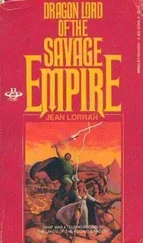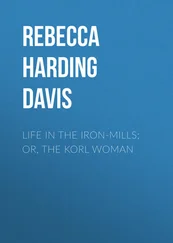Mark Mills - The Savage Garden
Здесь есть возможность читать онлайн «Mark Mills - The Savage Garden» — ознакомительный отрывок электронной книги совершенно бесплатно, а после прочтения отрывка купить полную версию. В некоторых случаях можно слушать аудио, скачать через торрент в формате fb2 и присутствует краткое содержание. Жанр: Старинная литература, на английском языке. Описание произведения, (предисловие) а так же отзывы посетителей доступны на портале библиотеки ЛибКат.
- Название:The Savage Garden
- Автор:
- Жанр:
- Год:неизвестен
- ISBN:нет данных
- Рейтинг книги:4 / 5. Голосов: 1
-
Избранное:Добавить в избранное
- Отзывы:
-
Ваша оценка:
- 80
- 1
- 2
- 3
- 4
- 5
The Savage Garden: краткое содержание, описание и аннотация
Предлагаем к чтению аннотацию, описание, краткое содержание или предисловие (зависит от того, что написал сам автор книги «The Savage Garden»). Если вы не нашли необходимую информацию о книге — напишите в комментариях, мы постараемся отыскать её.
The Savage Garden — читать онлайн ознакомительный отрывок
Ниже представлен текст книги, разбитый по страницам. Система сохранения места последней прочитанной страницы, позволяет с удобством читать онлайн бесплатно книгу «The Savage Garden», без необходимости каждый раз заново искать на чём Вы остановились. Поставьте закладку, и сможете в любой момент перейти на страницу, на которой закончили чтение.
Интервал:
Закладка:
He was a little disappointed when their own ship's passage of the Indian Ocean unfolded without incident, even if the clement weather was borne out by the readings on his barograph. Denied the opportunity of forewarning the captain of some impending climatic disaster, he devoted his time to investigating the idiosyncrasies of the ocean currents. This involved dropping numerous messages over the side of the ship, and to this end he regularly dispatched the young Signora Docci to loot empty beer bottles from the ship's pantry—considerably more bottles, it seemed to her, than the actual number of messages he spent so much of his time dictating to Nanny back in his cabin.
Maybe some of those bottles were cast up on foreign shores, their notes returned, as requested, to his home address in Glasgow. If they were, he never got to know of it. Within six months of their arrival in Java, a Dutch postal packet went down with all hands in a typhoon off the island of Celebes. Walter F. Peploe was among those listed missing, presumed dead. "The silly fool," Nanny had said. "I can just see him at the end with his stupid barograph, oh so pleased with himself, shouting 'See, I told you so!'"
News of the meteorologist's untimely end only reached the Doccis just before they boarded the boat home, after a trying year in the tropics. Most of their time had been spent on Borneo, with a brief interlude in northern Sumatra, because that island was also home to orangutans—the great apes that had lured her father halfway around the world.
Again, her memories were patchy yet precise. She could recall the Dutch gentlemen, kind and courtly, dressing for dinner in heavy black tailcoats despite the enervating heat and humidity. They were forever smoking cigars and drinking gin and bitters. She also remembered the black teeth of the natives (considered a mark of beauty), the milky white water of the coral reefs and the smoke of the volcanoes rising in misty clouds against the clear blue sky. Then there was the virgin forest that clad almost everything and called no one master. This was where they spent the greater part of their time, beneath the dense green canopy, where only the odd stray sunbeam penetrated to the mulchy forest floor. There were no views in the forest, no horizons, just the trees closing in behind you as you traveled through it. And then there was the eternal imminence of death.
She had a strong recollection of the natives on Sumatra huddling in the treetops whenever the tigers came, which was often. There were no tigers on Borneo, but the banteng —the wild buffalo—was just as feared. It attacked for no apparent reason, and with lightning speed. One time a rhinoceros broke from a bamboo thicket, sundering their rank of bearers, leaving a path as broad as a cart track behind it in the matted undergrowth. And of course there were the snakes, the stuff of childhood nightmares. The king cobra had been known to pursue men for many miles, although if you had the presence of mind to shed one of your garments, it would halt to attack that, buying you precious moments to escape.
She described how they had emerged one morning from their hut to find a giant python coiled in a wooden cage, unable to escape, having swallowed whole the former occupant of the cage, a goat they kept for its milk.
Her most vivid memories, though, and the most disturbing, were of her father, of his physical and then his mental deterioration. When he wasn't hunting orangutans, he was preparing their skins and skeletons. He would emerge from his makeshift charnel house exhausted, reeking of putrefaction, his hands cut and red, raw from the arsenical soap he'd applied to the bones to deter insects. The feet of the trestle table he worked on were placed in bowls of water—a barrier to the ever-present ants—but somehow they always found a way onto his specimens. When he began to take this as a personal affront, her mother started to worry. When he threatened to shoot one of the bearers for sneaking sips of the arrack in which he preserved his pelts, it was time to talk of calling a halt to the venture.
He resisted the suggestion, insisting that the skins and skeletons were a lucrative source of income—which they were, zoological museums paid handsomely for both—and rejecting the counterargument that he had traveled to the tropics in the name not of Mammon but of Science.
With hindsight, Signora Docci went on, it was clear that the expedition was doomed from the first. It was the final stab of a desperate man intent on debunking Darwin. To her father's credit, his position had shifted since The Origin of Species was first published, moving from one of knee-jerk ridicule to a more tempered assessment of the scientific facts. The third phase of his own private evolution had taken the form of a preemptive strike: there was nothing wrong with Darwin's theories of natural selection because the most esteemed Christian thinkers, including Saint Augustine and Saint Thomas Aquinas, had already sanctioned a kind of "derivative creation"—the argument being that when God declared "Let the waters produce" and "Let the earth produce," he was conferring forces on the elements that enabled them, in accordance with his laws of nature, to produce various species of organic beings. Her father's efforts to harmonize the new science with Catholic orthodoxy soon foundered, though, as he struggled to bend the words of the venerable theologians to his own ends.
Instead, he reached for another theory—his last, and the one that had carried him and his family to the East Indies. This conceded to Darwin the development of new species by natural selection, man included, while allowing for a divine, overarching plan. Put simply, her father argued that after innumerable generations of influence, natural selection had run its course, spent its load. All life on earth had now entered an era of "conservative heredity" in which the power of adaptation in organisms had slowed to the point of being almost nonexistent. This theory permitted a return to the old idea of the absolute fixity of living species, with man at the top of the pyramid, as intended by God.
Where better to search for proof of this than among the anthropoids, the order of great apes whose existence now haunted man like some ancestral ghost? It was a matter of reliable record that two types of orangutan inhabited Borneo, living side by side, even nesting in the same trees. The mayas tjaping (as it was called by the locals) was a larger animal, with a square head flanked by fatty cheek pads. The mayas kassa was slighter, its face narrower, more delicately featured.
From the presence of orangutans on the neighboring island of Sumatra—the only other place on the planet where they were to be found—one could safely conclude that all orangutans shared a common heritage reaching back to a distant epoch when a land connection existed between the two islands. The big question— and one that her father believed answered itself—was this: given the separation of the Bornean and Sumatran orangutans hundreds of thousands, if not millions, of years previously, why had the two populations not evolved independently of each other according to the Darwinian model? By all accounts, they were the same, right down to the subtle differences of physiognomy between the two types of orangutan, both of which were also present on Sumatra.
This wasn't to say Darwin was wrong—there was too much evidence in favor of his evolutionary theory—simply that he was no longer right. The power of heredity had evidently increased since the primordial era to the point that living organisms were now fixed and immutable.
The logic was sound, even to her mother's skeptical ears, or she wouldn't have consented to accompany her husband to one of the least hospitable corners of the planet.
Читать дальшеИнтервал:
Закладка:
Похожие книги на «The Savage Garden»
Представляем Вашему вниманию похожие книги на «The Savage Garden» списком для выбора. Мы отобрали схожую по названию и смыслу литературу в надежде предоставить читателям больше вариантов отыскать новые, интересные, ещё непрочитанные произведения.
Обсуждение, отзывы о книге «The Savage Garden» и просто собственные мнения читателей. Оставьте ваши комментарии, напишите, что Вы думаете о произведении, его смысле или главных героях. Укажите что конкретно понравилось, а что нет, и почему Вы так считаете.











